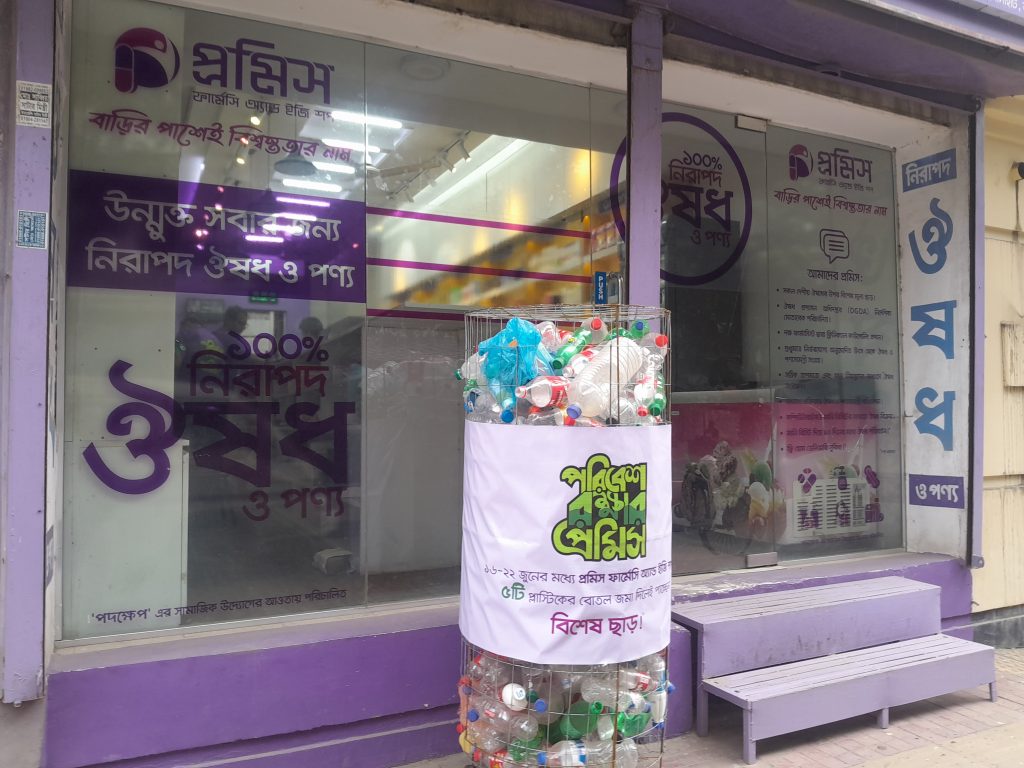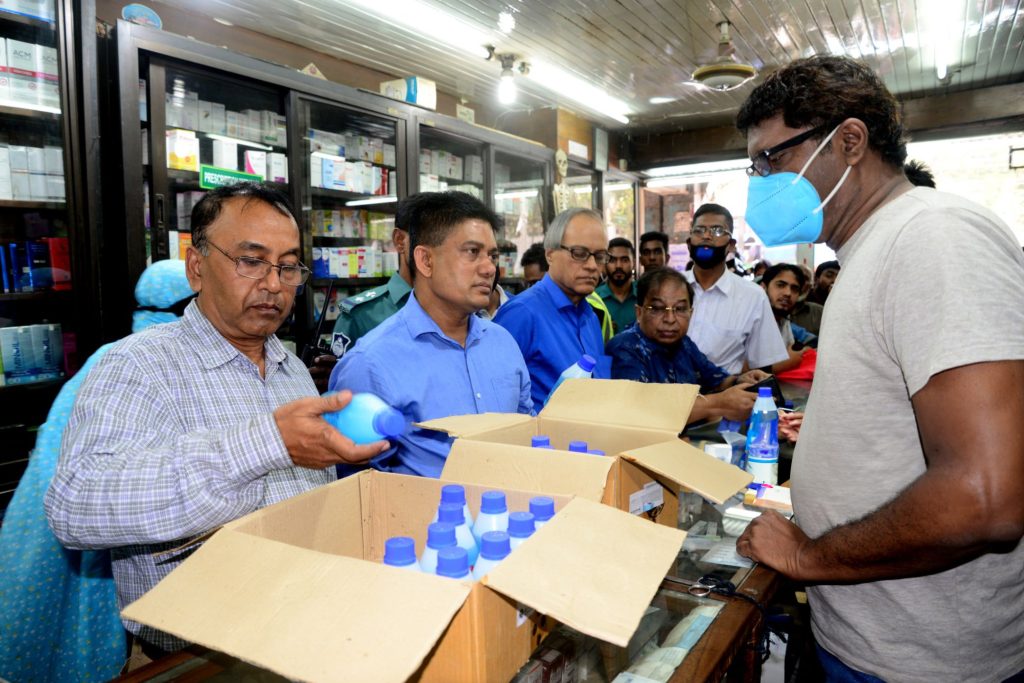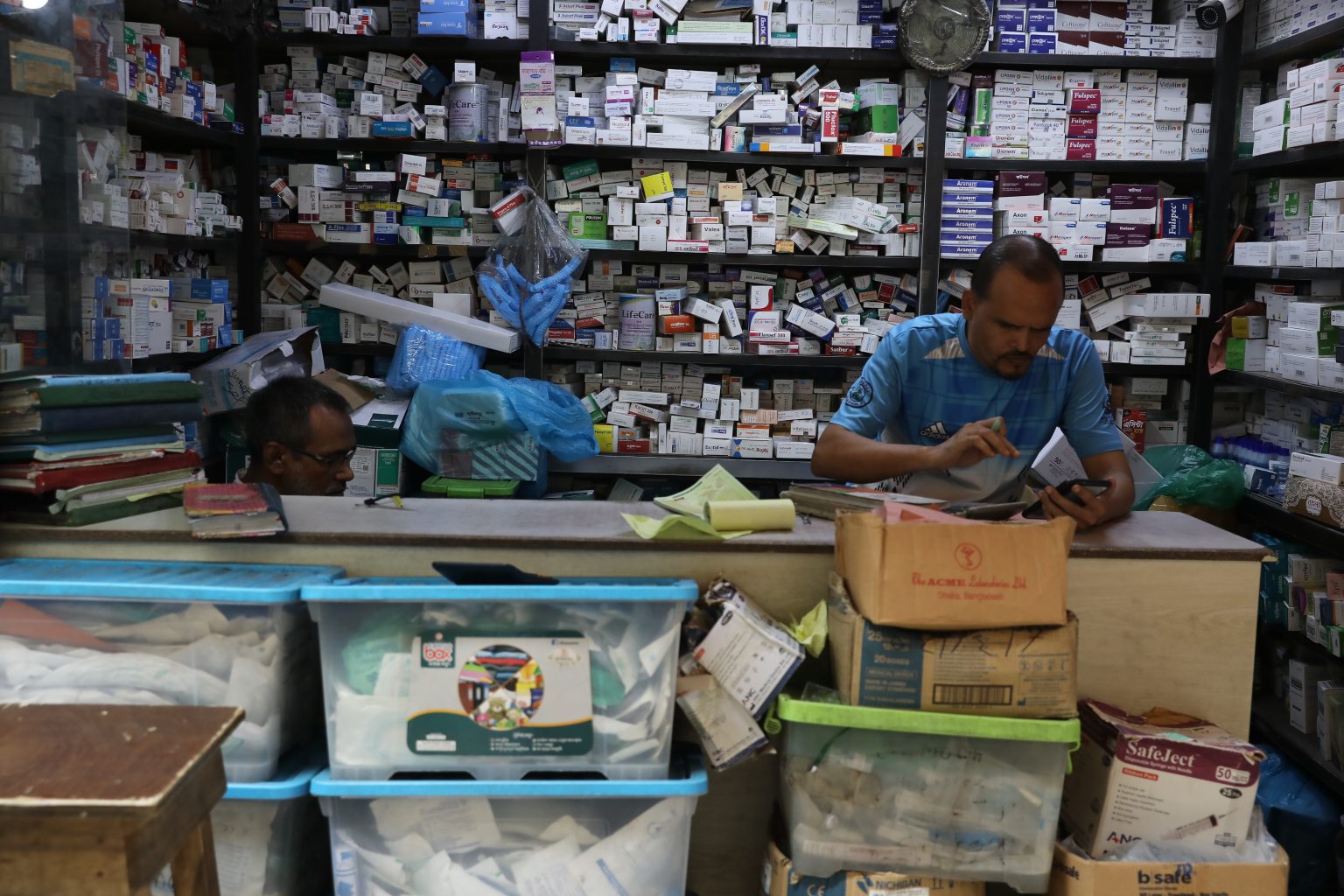The retail medicine trade in Bangladesh continues under a mix of legal and illegal operations.
Despite the widespread presence of pharmacies in almost every neighbourhood, nearly half of them lack the required authorisation to sell medicines.
According to the latest data from the Directorate General of Drug Administration (DGDA), there are 226,118 registered pharmacies in the country. However, nearly half of them do not have valid registrations. Around 100,000 pharmacies with expired licences have not renewed them in 10 to 15 years.
Additionally, DGDA sources say there are roughly 250,000 unlicensed drugstores across the country, operating without any authorisation to sell medicines. Dhaka alone is estimated to have around 100,000 pharmacies, many of which are unapproved.

In 2021, the then health minister informed the national parliament that 12,592 unlicensed pharmacies had been officially identified. However, unofficial figures suggest that the real number has long surpassed 150,000. DGDA officials admit informally that the actual number is likely even higher.
One anonymous pharmacy owner said, “Obtaining a drug licence is very complicated. That’s why I don’t have one. If the authorities show up, we pay them what’s needed. Everyone operates like this.”
According to public health experts, whether a pharmacy is licensed or not, most citizens are deprived of professional pharmaceutical care. Most drugstores lack certified pharmacists and proper storage systems, posing a serious risk to public health.
Dr Md Ajijur Rahman, professor at the Pharmacy Department of Rajshahi University, told Times of Bangladesh, “The density of doctors, pharmacists, and nurses in a country indicates the quality of its healthcare. Countries like Japan, Australia, Spain, the US, Canada, South Korea, and the UK have high pharmacist-to-population ratios. In North America and Europe, the doctor-to-pharmacist ratio is about 3:1; in Japan, it’s almost 1:1. In Bangladesh, it’s nearly zero.”
“Although Bangladesh has around 22,000 graduate pharmacists, most are employed in the pharmaceutical industry. Very few work in pharmacies. The combined number of community, clinical, and hospital pharmacists is likely between 200 and 300, meaning the general public is almost entirely deprived of pharmacist services,” he added.
Yet, two laws from the 1940s exist on this matter.

The Drug Act of 1940 and the Rules of 1945 prohibit selling medicines without a certified pharmacist — a rule that is widely flouted in practice.
So, what’s the solution?
Public health expert Dr Ahmed Parvez said, “The DGDA has the capacity to regulate. They should increase monitoring and ensure that district and upazila-level civil surgeons oversee proper medicine supply in pharmacies. Also, there should be clear explanations for who receives registration and why others don’t, helping to create transparency.”
In response, the interim government has announced a plan to establish a “Pharmacy Network”.
Special Health Adviser Dr Sayedur Rahman said the government will initially build a network of 700 quality pharmacies and modernise hospital-based pharmacies.
The government is also taking renewed steps to act against unlicensed and unauthorised pharmacies.
Dr Md Akhtar Hossain, Director at the DGDA, stated, “We are conducting regular raids. A public notice with a deadline has been issued. Legal action will be taken against those who fail to renew their licences within the given timeframe.”
The requirements to operate a model pharmacy are strict, including the need for a trained graduate pharmacist, a minimum shop size, portable refrigeration, temperature-controlled storage, a trade licence, and more. However, the licence and renewal fees themselves are not particularly high.


